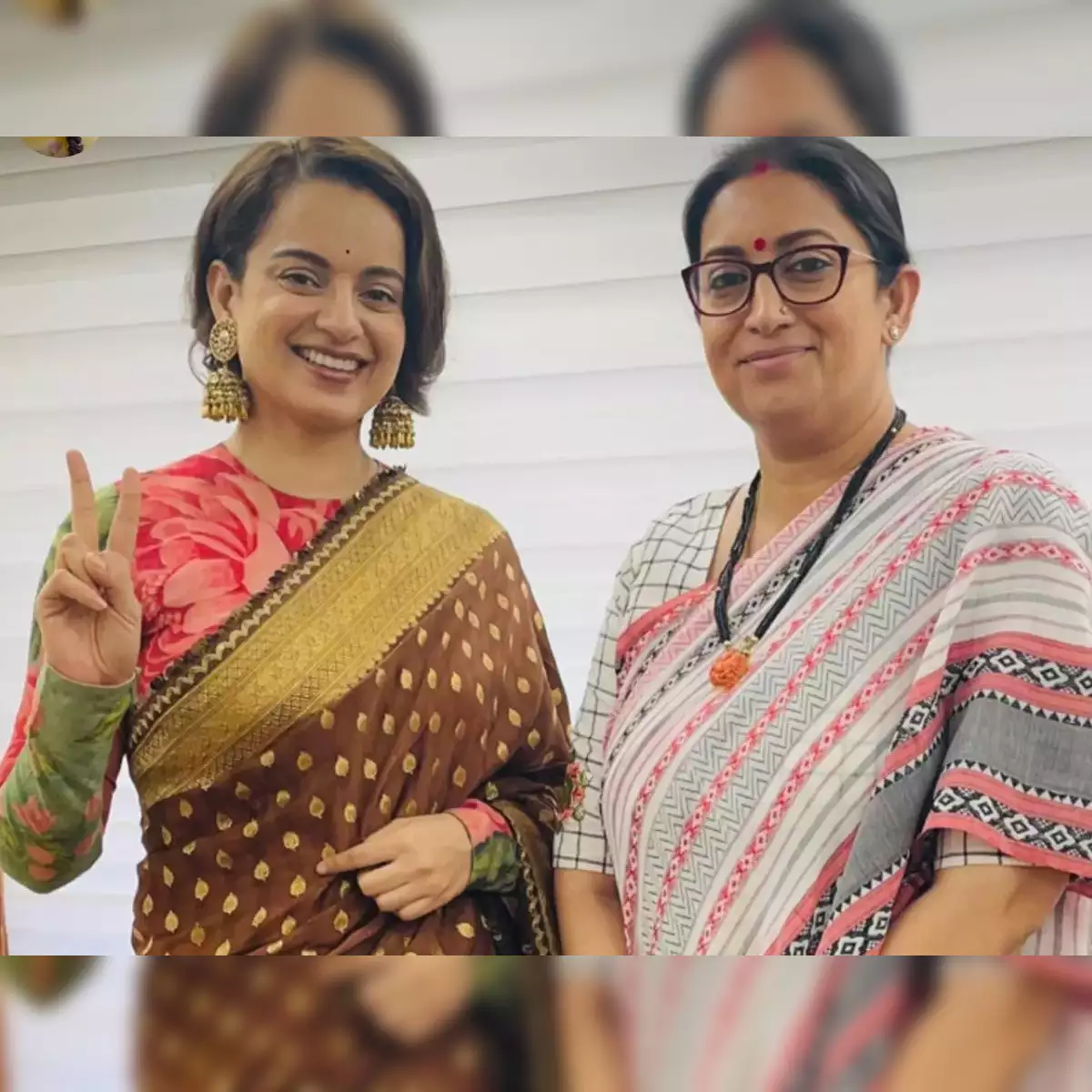Divisive Rhetoric to Ethical Quagmires: Women Politicians Under the Spotlight

TCN News
New Delhi: In the aftermath of the recent elections, several women politicians have come under intense scrutiny for their controversial actions and statements during their campaigns. These incidents have sparked a debate on the ethical conduct expected from public figures, especially those in positions of power and influence.
One such instance involves Madhvi Latha, who contested from Hyderabad on a Bharatiya Janata Party (BJP) ticket. Despite her efforts, she faced a resounding defeat, marked by a margin of over 3 lakh votes.
Her campaign was marred by controversy when she gestured with an arrow towards a mosque during a Ram Navami procession, leading to widespread criticism.
Moreover, her misogynistic and Islamophobic comments further fueled outrage, highlighting the need for greater sensitivity and respect towards diverse communities.
Similarly, actor-turned-politician Kangana Ranaut secured victory in Himachal Pradesh’s Mandi constituency but faced criticism for her divisive rhetoric. Her remarks during her campaign, including a mix-up of names and divisive comments, drew sharp condemnation, raising questions about her commitment to responsible political discourse.
She had said, “When we got independence, where did India’s first prime minister Netaji Subhas Chandra Bose go?”
Another notable instance was when she criticized Rashtriya Janata Dal (RJD) leader Tejashwi Yadav, mistakenly referring to him as Tejaswi Surya (her own party colleague and MP from Bangalore), for consuming fish and meat during Navratri.
Shobha Karandlaje, another BJP candidate who emerged victorious, faced backlash for her discriminatory remarks against Tamilians, accusing the Tamils of coming to Karnataka to “plant bombs”.
Despite apologizing for her statements, she was booked under sections 123 (3A), 125, 123 (3) of the Representation of People’s Act.
Her controversial statement reflected the importance of promoting inclusivity and unity in diverse societies. It also underscored the need for politicians to uphold principles of respect and tolerance.
Navneet Rana’s electoral defeat in the Amravati Lok Sabha constituency was accompanied by controversy surrounding her confrontational actions and statements.
From her instance to recite Hanuman Chalisa outside the residence of former Maharashtra Chief Minister Uddhav Thackeray to inflammatory comments directed at Asaduddin Owaisi and his brother Akbaruddin Owaisi, Rana’s conduct highlighted the risks of polarization and division in political discourse.
Pallavi Shrinivas Dempo’s defeat in South Goa shed light on issues of transparency and integrity in electoral processes. Her substantial wealth and financial transactions raised concerns about the influence of money in politics, emphasizing the importance of accountability and ethical governance.
She held the title of being the most affluent candidate during the third phase of the general elections, boasting a declared asset worth Rs 1,361 crore. Additionally, she had purchased electoral bonds totaling Rs 1.25 crore in January 2022, just a month before the Goa Assembly elections. Out of this sum, bonds worth Rs 50 lakh were later redeemed by the BJP.
Sobha Surendran’s loss in Kerala’s Alappuzha constituency underscored the complexities of navigating sensitive cultural and religious issues. Her stance on contentious issues such as women’s entry into Sabrimala temple sparked debate, highlighting the delicate balance between tradition and progress in a diverse society.
The vice president of the saffron party in the state had openly voiced her backing for PC George during his arrest for making inflammatory remarks against the Muslim community. She expressed her willingness to sacrifice her life to uphold the Sabrimala temple’s traditions.
As these cases demonstrate, the conduct of women politicians in the public sphere is subject to intense scrutiny, with ethical missteps inviting significant backlash. Moving forward, there is a pressing need for greater accountability, integrity and respect for diversity among political leaders, regardless of gender, to foster a more inclusive and responsible political environment.
